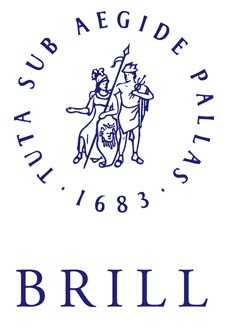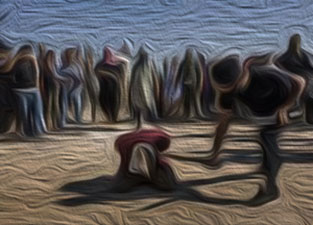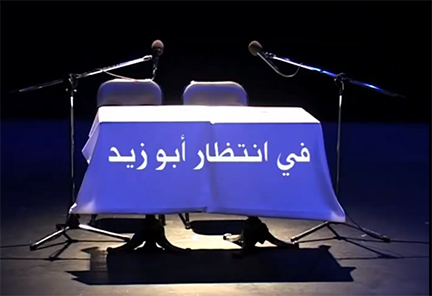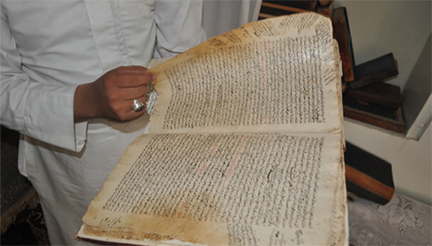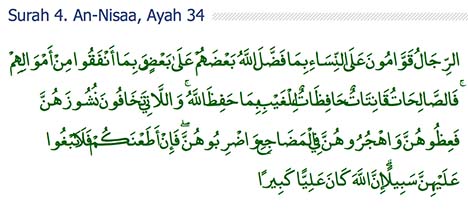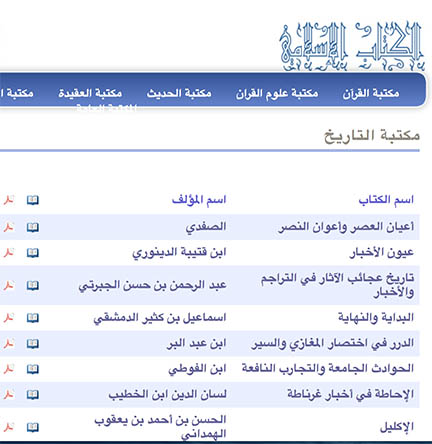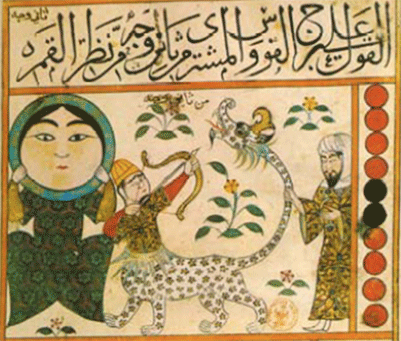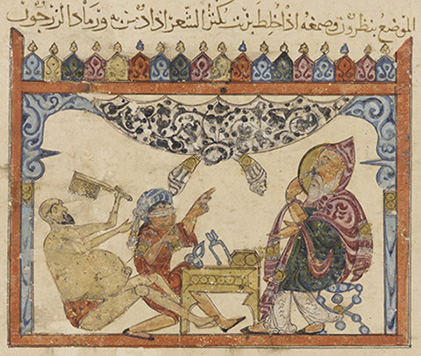
Sackler Gallery Smithonian Institution S1986.97aPhysician with two patients, Baghdad 1224 (Smithsonian Institution, Sackler Gallery SI986.97a)
[The Wellcome Trust is generously funding a joint University of Oxford/University of Warwick publishing project online of an important 13th century medical text. Read about it below and on their website.]
KitÄb Ê¿UyÅ«n al-anbÄʾ fÄ« á¹abaqÄt al-aá¹ibbÄʾ
كتاب عيون الأنباء ÙÙŠ طبقات الأطباء
In the mid-13th century, a practising physician in Syria named Ibn AbÄ« Uá¹£aybiÊ¿ah set himself the task of recording the history of medicine throughout the known world. His book The Best Accounts of the Classes of Physicians covers 1700 years of medical practice, from the mythological beginnings of medicine with Asclepius through Greece, Rome, and India, down to the author’s day. Written as much to entertain as to inform, it is not only the earliest comprehensive history of medicine but the most important and ambitious of the medieval period, incorporating accounts of over 442 physicians, their training, practice, and medical compositions, all interlaced with amusing poetry and anecdotes illustrating their life and character. The ‘Herodotean’ breadth of the book reflects the geographical and cultural reach of the Islamic empire. Written by a man who was a medic and a poet, this highly readable history reflects considerable medical experience and lies at the interface of the serious medical practice of the day with society’s interest in biography and gossip.
The Wellcome Trust is generously funding a joint University of Oxford/University of Warwick project that will make this remarkable historical source available for the first time in a reliable and readable translation and study, as well as a critical edition of the text itself, resulting in a step-change in our knowledge of medical history in Medieval Islam. For nearly 300 years attempts to translate this monumental work have failed owing to the extraordinary range of skills needed to tackle it. This joint project is the first to assemble a team of senior and junior scholars with the required skills and interests to make it happen.
As work proceeds during the three- and one-half-year project, samples of biographical entries will be placed on this web page, with an opportunity provided for general discussion and comment.
